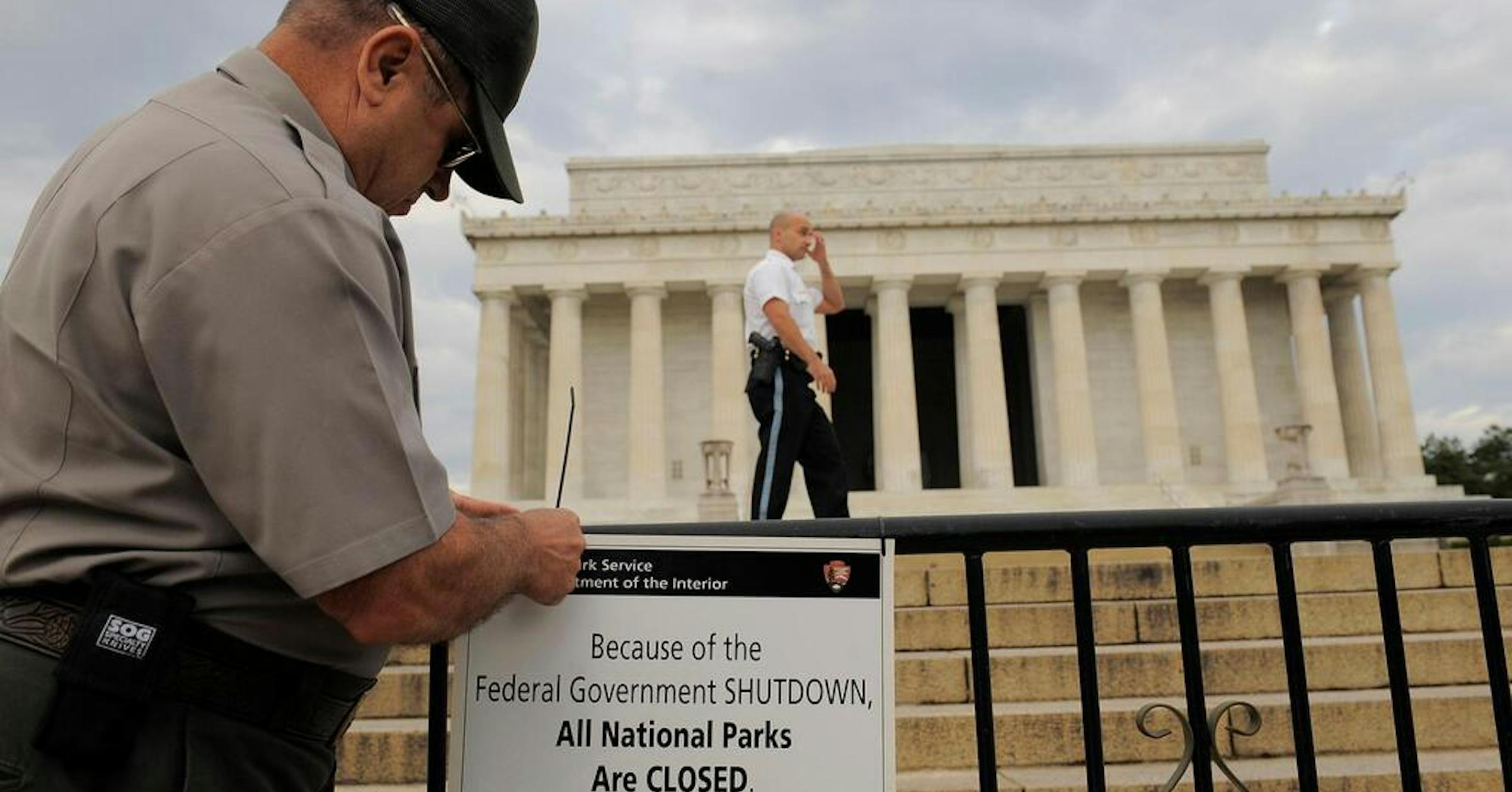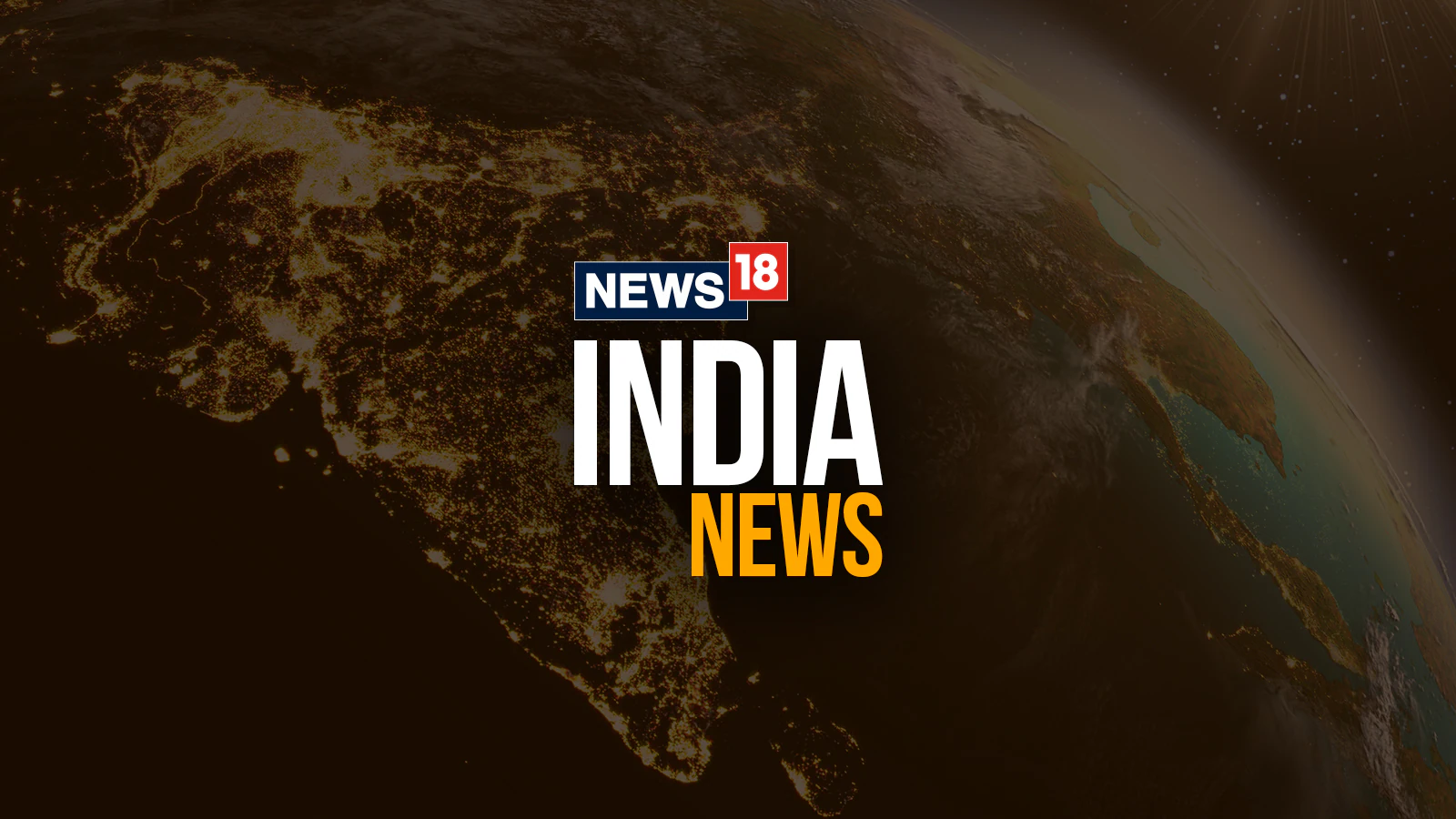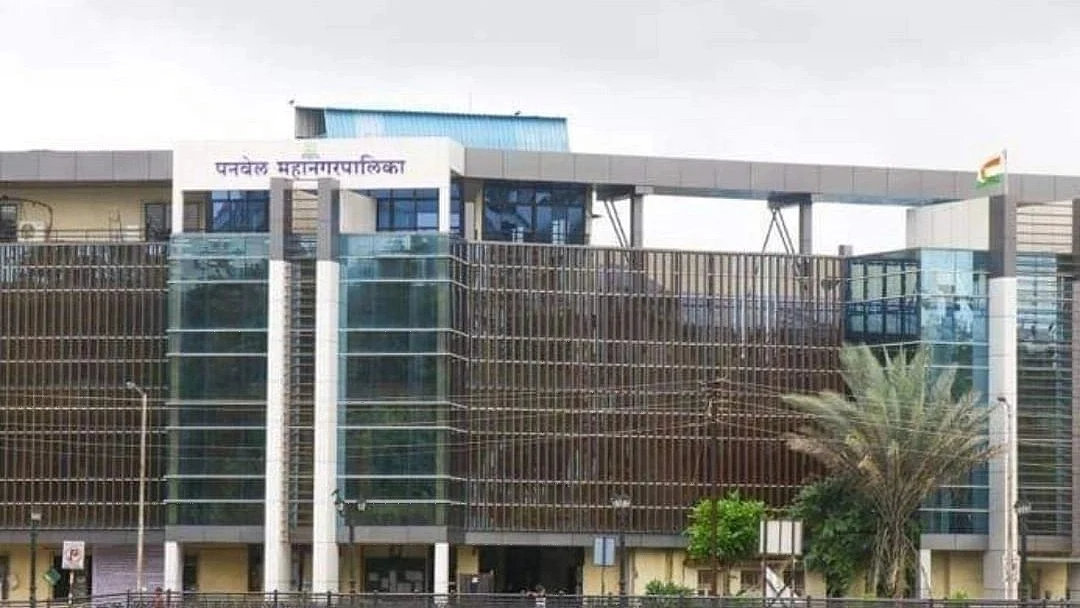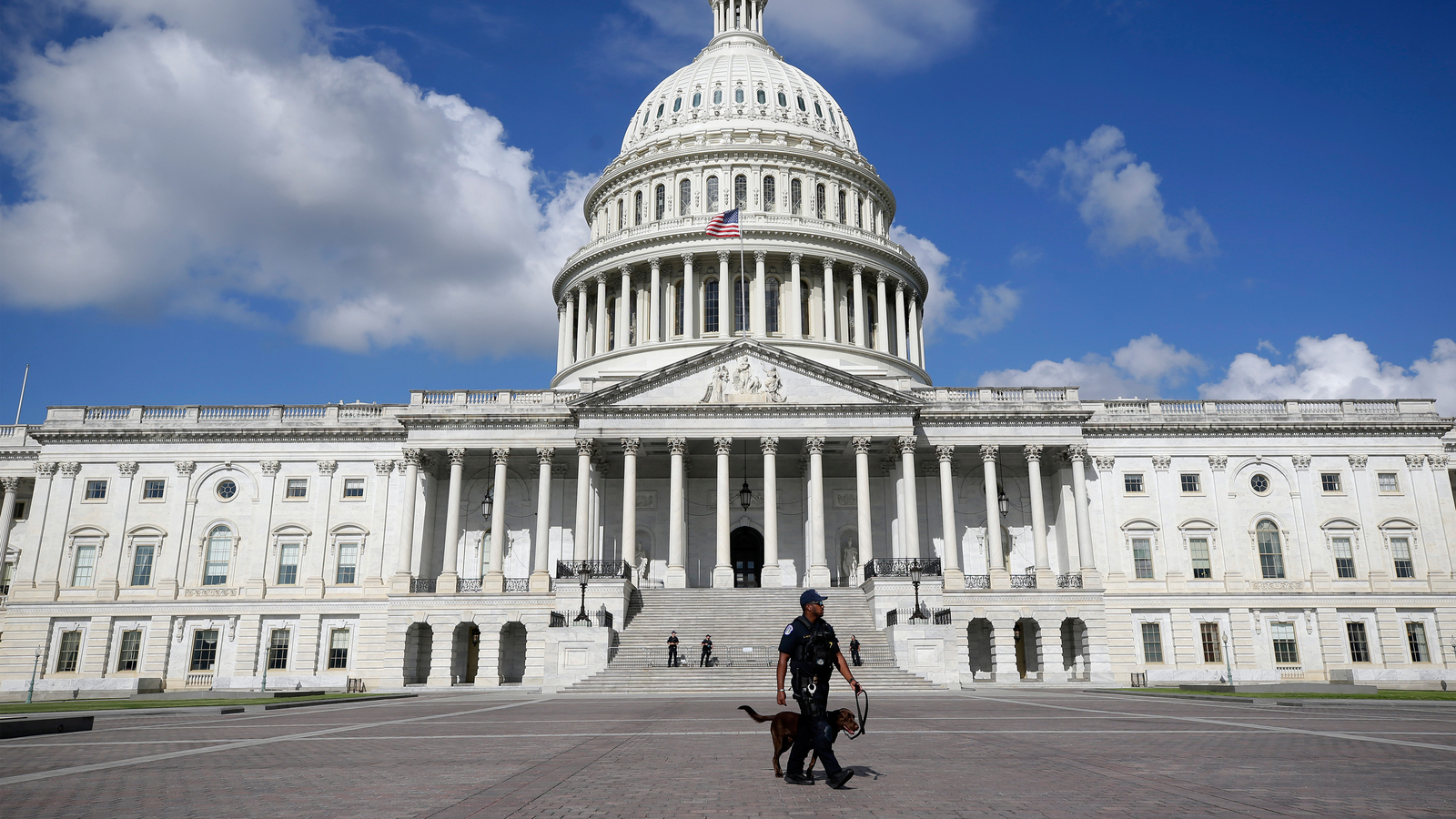
As Washington stumbles toward another government shutdown, some veterans of previous battles caution against reading too much into the political tea leaves.
The Washington Post
September 27, 2025 at 7:45PM
A National Park Service staffer puts up a sign announcing the closing of the Lincoln Memorial at the start of a government shutdown in 2013.
Democrats believe this shutdown will play out differently because Trump’s popularity among voters has plummeted on what used to be his strongest point: his stewardship of the economy. A Washington Post-Ipsos poll last week showed voters opposed his signature tariff policy by 30 percentage points, and his approval on the economy overall was 19 points below water.
The government does seem to be headed toward a shutdown. Schumer and House Minority Leader Hakeem Jeffries (D-New York) have been on the same page about their demands for extending health care tax subsidies and other health initiatives, in exchange for the necessary Democratic support to overcome a Senate filibuster and avoid the shutdown.
Meanwhile, House Speaker Mike Johnson (R-Louisiana) and Senate Majority Leader John Thune (R-South Dakota) have been united in refusing those demands.
Israel, the DCCC chair in 2013 and 2014, has told current lawmakers that they are in a strong political position to fight for their health care policies.
“That’s ground worth fighting for, for Democrats,” he said.
Matt Gorman, a top adviser at the National Republican Congressional Committee in 2018, predicted that Democrats would suffer if the government shuts down — that they would be blamed because they are seen as instigating this fight.



